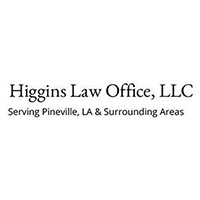Jonesville Misdemeanor Lawyer, Louisiana
Sponsored Law Firm
-
 x
x

Click For More Info:
-
Babcock Trial Lawyers
10101 Siegen Ln #3-C Baton Rouge, LA 70810» view mapCriminal Defense We Want Your Injury Claim PAID NOW!
At Babcock Trial Lawyers, we work for our clients, maintaining our reputation of excellence as criminal defense & personal injury lawyers in Baton Rouge.
225-500-5000
Not enough matches for Jonesville Misdemeanor lawyer.
Below are all Jonesville Criminal lawyers.
George Higgins
✓ VERIFIEDCriminal, Accident & Injury
George Lewis Higgins III received his Juris Doctor degree in 1979 from Paul M. Hebert Law Center at Louisiana State University in Baton Rouge. Mr. Hig... (more)
Christopher Lee Boothe
Divorce & Family Law, Employment, Criminal, Felony
Status: In Good Standing Licensed: 23 Years
David E Marquette
Divorce & Family Law, DUI-DWI, Wills & Probate
Status: In Good Standing Licensed: 39 Years
Barry M Barnett
Real Estate Other, Immigration, Misdemeanor, Child Custody
Status: In Good Standing Licensed: 38 Years
Amira M Roy
Immigration, Employee Rights, Divorce, Criminal
Status: In Good Standing Licensed: 8 Years
Anna B Ferguson
Immigration, Child Custody, Divorce & Family Law, DUI-DWI
Status: In Good Standing Licensed: 33 Years
B Gerald Weeks
Accident & Injury, Criminal, Lawsuit & Dispute
Status: In Good Standing Licensed: 47 Years
 Stephen Babcock Baton Rouge, LA
Stephen Babcock Baton Rouge, LA Practice AreasExpertise
Practice AreasExpertise

